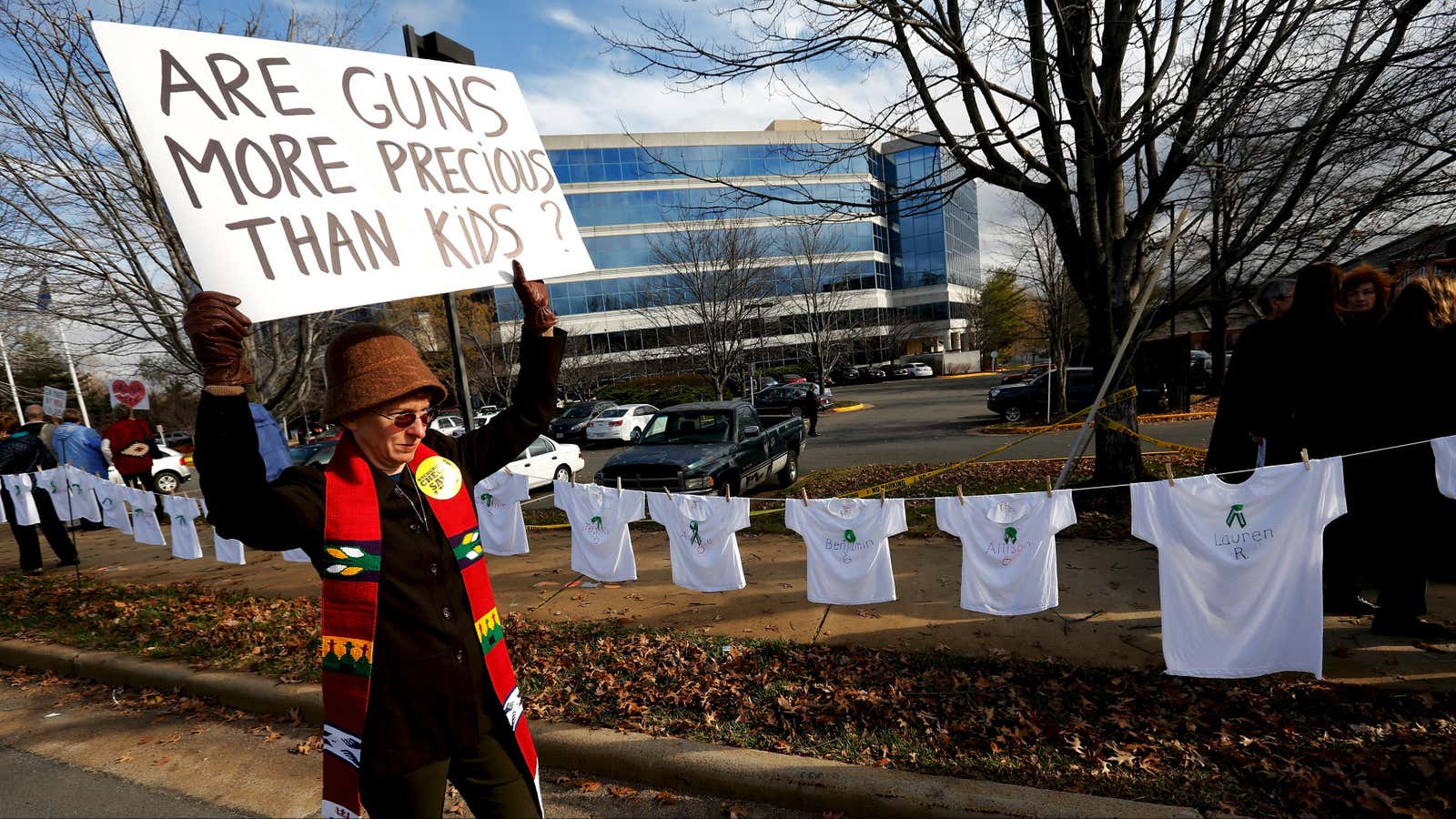Mass shootings account for only 0.3% of all gun deaths in the US, but they evoke a significantly larger policy response than regular gun-related fatalities. A trio of researchers from the Harvard Business School found that the number of firearm bills introduced in a state jumps 15% in the year after a mass shooting, with the per-death impact of mass shootings on bills introduced about 66 times as large as the impact of individual gun murders.
Whether those bills tighten or loosen gun regulations depends on which party controls the legislature.
When Republicans are in power, a mass shooting increases the number of laws that are passed loosening gun restrictions by 75%; the group found no significant effect in Democratic-controlled legislatures.
“I was surprised that politics is more dominant than policy in the aftermath of a mass shooting,” said Michael Luca, an assistant professor at Harvard Business School, and one of the working paper’s authors. Democrats and Republicans do respond in the aftermath of a tragedy, but “they are more opportunistic about pushing the things they would have wanted to see passed prior to the mass shooting,” he said.
The Republican response may seem logical to some: mass shootings galvanize attention and heighten fear. For those who think the best response to that fear is to arm yourself and everyone around you, looser gun rules make sense.
But more guns have not made America a safer place. The number of gun murders per capita in the US in 2012—the most recent year for comparable statistics—was almost 30 times higher than those in Britain (2.9 per 100,000 compared with just 0.1), according to the United Nations Office on Drugs and Crime. Sixty percent of murders in the US were committed by guns compared to 31% in Canada, 18.2% in Australia, and just 10% in the UK.
Luca and his colleagues Deepak Malhotra and Christopher Poliquin, both of the Harvard Business School, wanted to test the prevailing wisdom that nothing ever gets done in the wake of a mass shooting. They created a database to look at how state legislatures respond to mass shootings, tallying all US gun legislation and mass shootings from 1998-2014. (While federal laws establish a minimum gun control levels, state governments are the primary regulators of firearms, the study says).
“Things do happen after mass shooting, it’s just not the things we think would have happened,” said Luca.
There is more work to be done to figure out what is the right policy response to mass shootings, i.e., do tighter gun restrictions effectively reduce mass shootings, or homicides? But one thing is clear from the research: there is a dearth of response to homicides, which account for far more deaths than mass shootings. According to their findings, a 240% increase in the individual homicide rate in a state would have about the same impact on the number of bills proposed as a single mass shooting does.
That’s no reason to stop reacting to mass shootings—but perhaps we need a more comprehensive approach to the type of gun violence that’s killing people every day.
